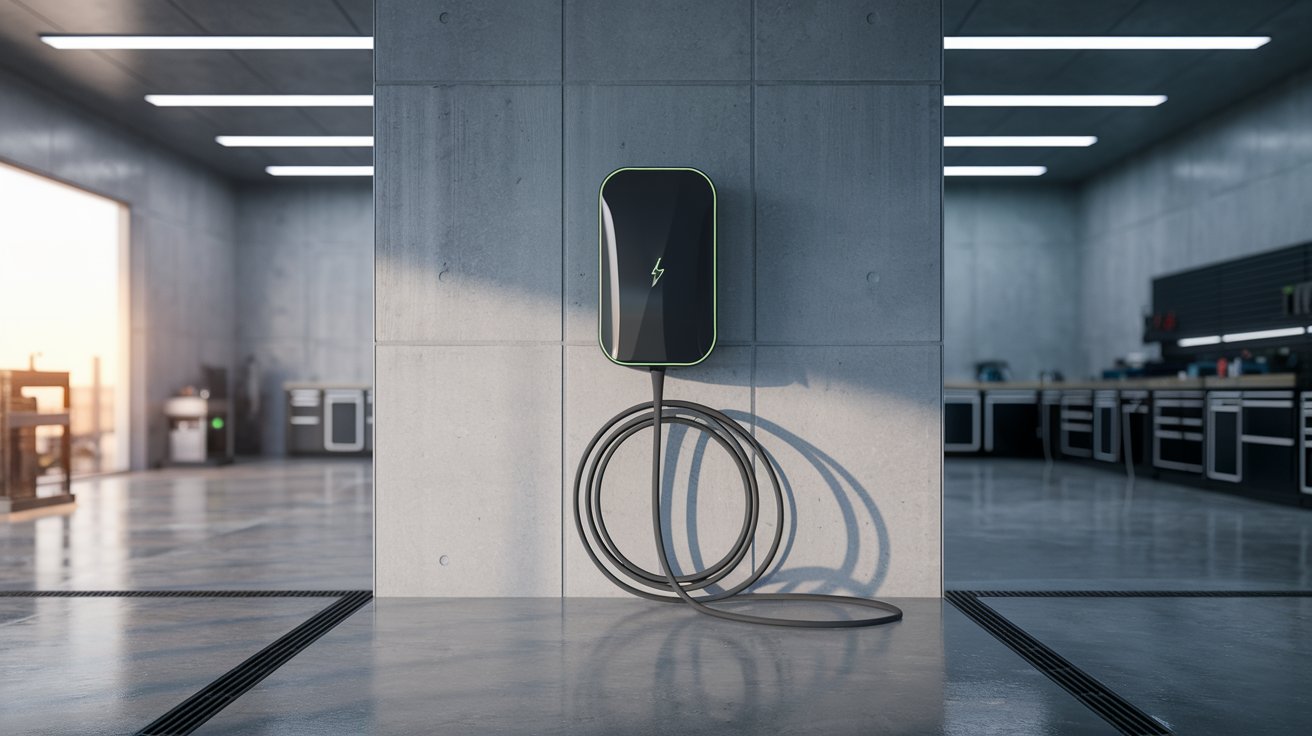
What EV Charger Should I Buy For Home Use
The Best EV Charger for Your Home
Electric vehicle owners face tough choices. The market floods with options.
Choosing the right home charging station changes your daily routine and wallet.
Not just any charger will do.
Level 2 charger matches your car, electrical setup, and driving habits.
Most EV owners think too hard about their needs. Simple solutions work best for residential charging situations.
The right charger means freedom from range anxiety and lower energy bills.
You'll learn about:
- Different charging levels
- Installation requirements
- Smart features worth paying for
Charging speed matters first. This knowledge saves you from expensive mistakes when selecting your home charging station.
Understanding EV Charging Levels
Charging levels set the foundation for your EV ownership experience. Each level delivers specific power output and charging speed benefits for different situations.
Level 1: Basic Household Power
Level 1 charging uses regular 120V outlets. This method adds 3-5 miles of range per hour of charging time. It works for hybrids or people who drive short distances daily with minimal installation costs.
Level 2: The Sweet Spot
Level 2 charger delivers the ideal balance for home use. Connected to a 240-volt circuit, these wallmounted units add 25-30 miles of range hourly through increased amperage capacity. Most EVs fully charge overnight with a home charging station, making mornings stress-free.
A good Level 2 setup ends the days of searching for public charging stations.
Power output varies between models. Units range from 16 to 80 amps depending on your electrical panel compatibility and charging speed needs.
Level 3: Beyond Home Use
DC Fast Charging rarely makes sense for homes. Installation costs reach commercial levels, requiring specialized electrical infrastructure beyond most residential capabilities through complex power delivery systems.
For most homeowners, J1772 connector equipped Level 2 represents the perfect balance between performance and practicality with reasonable utility rebates available.
Home Electrical Requirements
Electric vehicles need muscle to charge. Level 2 charger systems require dedicated 240-volt circuits to power your car overnight.
Most homes need 40-50 amp capacity on a separate circuit for proper charging.
Electrical panels demand assessment before installation.
Professional electricians must check your existing system compatibility with these requirements.
Circuit installation involves:
- Panel capacity evaluation
- Permit acquisition
- Code compliance verification
Safety features protect against electrical hazards when charging your vehicle at home charging station. Installation costs change based on your existing infrastructure and desired charging speed. What amperage capacity charger you select connects directly to your home's electrical capacity.
Choosing The Right Amperage Output
Power matters for charging times. Wallmounted unit amperage dictates how quickly your battery fills. Higher numbers deliver faster results.
Charging Speeds By Amperage:
- 16A: Adds about 12-15 miles per hour
- 30A: Provides roughly 25-30 miles portable EVSE per hour
- 40A: Delivers approximately 30-35 miles charging speed per hour
- 50A: Offers up to 37-40 miles installation costs per hour
Cars have built-in limitations that cap charging speeds regardless of smart connectivity charger capability. WiFi-enabled units with adjustable amperage settings give flexibility for different vehicles and situations. Tesla models accept different maximum power output rates than Chevy Bolts or Nissan Leafs. Your charging cable length efficiency depends on matching the right amperage to your specific car model weatherproof design.
EV Home Charging
- Level 2 chargers require dedicated 240-volt circuits with 40-50 amp capacity
- Higher amperage delivers faster charging speeds, with 50A offering up to 40 miles of range per hour
- Professional electrical panel assessment is mandatory before installation
- Vehicle models have built-in limitations that cap charging speeds regardless of charger capability
Permanent Vs. Portable Charging Solutions
Electric cars demand a choice.
Wall-mounted unit or portable EVSE? Your garage setup and lifestyle determine the right path.
Wall-mounted chargers offer unmatched reliability.
They connect directly to your home charging station electrical panel, delivering consistent amperage capacity night after night.
Professional installation costs matter but charging speed increases. The unit stays put.
You never forget it.
The permanent advantage: Plug in. Walk away.Done.
Portable EVSE flexibility serves different needs:.
- Road trips become possible without hunting for chargers
- Multiple properties receive power without duplicate installations
- Test before permanent commitment
- Renters avoid weatherproof design modifications
Level 2 charger options differ in power output. Permanent solutions deliver higher amperage capacity for faster charging cable length results. Portable units sacrifice some NEMA rating speed for mobility. Your charging needs J1772 connector tomorrow might outgrow today's solution.
Smart Features And Connectivity Benefits
WiFi-enabled chargers transform power into information. Your smartphone becomes the control center for your Tesla adapter charging experience.
Smart connectivity puts real control in your hands. Monitor your charging schedule from anywhere - restaurant, office, or bed. Start or utility rebates stop charging with one tap. The energy management system shows exactly what happens with load balancing precision.
Real-Time Monitoring Capabilities
- Current power draw
- Total session hardwired vs plugin length
- Energy consumed
- Error electrical panel compatibility alerts
Time-of-use optimization saves money automatically. JuiceBox and ChargePoint Home Flex units 240volt circuit schedule around peak rates. The charging network compatibility works while you sleep, filling your amperage adjustment battery when electricity costs less.
Smart chargers think about savings.
You think about your day.
Data analytics reveal cord management system patterns over time. Track costs through futureproof features and identify savings opportunities. Most multi-vehicle household systems update automatically, improving charging efficiency without your power consumption monitoring input.
EV Charging Solutions
- Wall-mounted chargers provide consistent amperage and faster charging speeds than portable options
- Portable EVSE units offer flexibility for road trips, multiple properties, and renters
- Smart chargers with WiFi connectivity allow remote monitoring and control via smartphone
- Time-of-use optimization in smart chargers automatically schedules charging during lower-cost electricity periods

